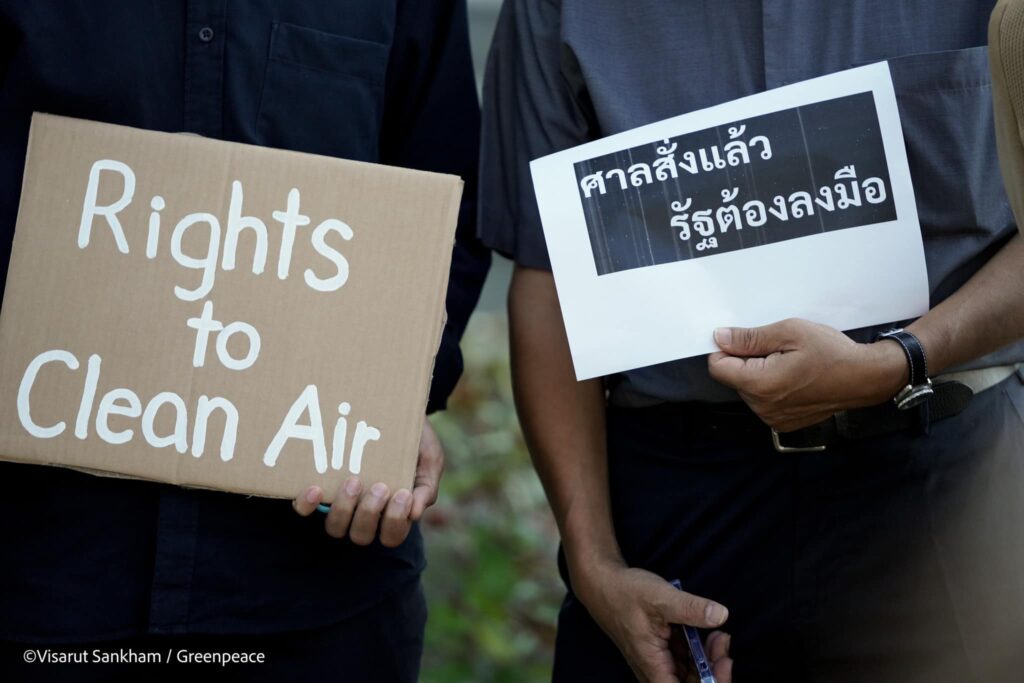Chiangmai Administrative Court instructs both parties to introduce emergency measures and holistic plans to address the problem within 90 days
Chiangmai Administrative Court yesterday ruled against the Prime Minister and the National Environment Board for negligence of duty and sluggishness in performing their duty in addressing and solving the Pm2.5 haze in the North last year.
The PM at that time was Gen Prayut Chan-o-cha and the chairman of the NEB at that time was Deputy PM Gen Prawit Wongsuwan, his close aide. They were authorised to take action following Article 9 under the Enhancement and Conservation of the National Environmental Quality Act. It gives full power to a prime minister to solve environmental crises.
They both were accused by the plaintiffs comprising some ten legal and medical practitioners and civil advocates, who had jointly filed a petition to the court, asking it to instruct concerned agencies including the Prime Minister to do more to tackle the PM2.5 haze problem. The group accused them of failing to enforce their authority to a full extent. They also asked the court to rule over the Securities and Exchange Commission (SEC) but the court dismissed this petition. (Read: Residents in the North sue PM and Environment Board for failing to tackle PM2.5 haze crisis)
The court said the plaintiffs were considered as damaged entities so they had the right to file the petition. The court said the plaintiffs had asked it to examine whether the first and second defendants were negligent or sluggish in performing their duty against the haze.
According to the court, the NEB had issued standards on PM2.5 concentration level, determining the safety level of its concentration in the air at no more than 50 micrograms per cubic meter (µg/m³) and then 37.5 µg/m³, which was in effect in mid-last year.
Despite the standards, PM.5 haze in several provinces in the North since 2019 had had its concentration beyond the safety limit, especially during the last dry season. Leading hospitals and public health offices all pointed to the critical impact on people’s health caused by the haze. More and more people fell sick or died because of it, the court cited. The court thus considered the situation as hazardous.
Although the first defendant was found to have taken action against the problem, it remained critical. The court thus ruled that the first defendant was sluggish in performing the duty.

The second defendant, meanwhile, was tasked to take control of the situation when the pollution reached a hazardous level with a PM2.5 concentration beyond 100 µg/m³ following the national agenda and action plan introduced by the government in 2019. The North faced PM2.5 with a concentration level way beyond 100 µg/m³ for a number of days, but the NEB never convened an emergency meeting to address the issue and proposed measures to the PM to execute to lessen the impact.
Thus, the court ruled that the NEB was guilty of being negligent and sluggish in performing its duty.
The court noted that the crisis has passed and is over. Still, the problem occurs regularly and has become more severe, especially during the dry season from January to April onwards. Following a preventive principle, it instructed the defendants to enforce the law immediately to develop and introduce emergency measures and holistic plans to address the problem. This must be done within 90 days, it said.
Supaporn Malailoy, EnLaw’s manager, said the court’s ruling has fulfilled the group’s requests. As Gen Prayut left the office, it will then be the duty of Mr. Srettha Thavisin, the new PM, to comply with the court’s instruction. Ms. Supaporn said the PM and the NEB can appeal to the court and the group has not yet learned about their decision on the appeal.
Indie • in-depth online news agency
to “bridge the gap” and “connect the dots” with critical and constructive minds on development and environmental policies in Thailand and the Mekong region; to deliver meaningful messages and create the big picture critical to public understanding and decision-making, thus truly being the public’s critical voice


